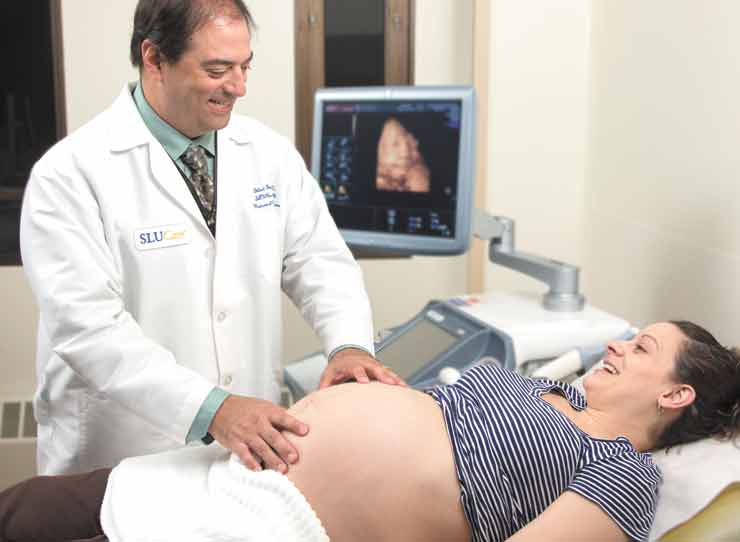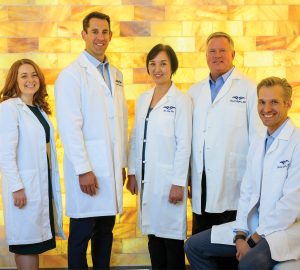A mom-to-be with a history of pregnancy-threatening fibroid tumors safely gives birth to healthy quadruplets. A fetus with a potentially fatal heart arrhythmia is given a normal rhythm via intrauterine therapy. A 43-year-old first-time mom has a successful labor and delivery, despite her high blood pressure and other health issues that come with advanced age. And an expectant mom in rural Illinois, who can’t afford the gasoline it would take to drive to St. Louis, has a high-level ultrasound procedure—via the Internet.
These everyday miracles are brought to you by the division of maternal-fetal medicine at SLUCare, the physicians of Saint Louis University. The division, part of SLU’s department of obstetrics, gynecology and women’s health, provides care to high-risk pregnant women and at-risk women who wish to become pregnant. “Thanks to our resources and expertise, there’s no issue our specialists aren’t equipped to handle,” says division director Dr. Gilad Gross, who also serves as director of labor and delivery at SSM St. Mary’s Health Center. “Our team of physicians, surgeons, neonatologists, medical geneticists and genetics counselors offers a full spectrum of care, from pre-conception counseling to prenatal and postpartum care.”
SLUCare OB/GYNs, based at SSM St. Mary’s Health Center, are renowned for their expertise in delivering high-risk babies. “When physicians in our catchment area encounter a problem, they send their patients to us,” Gross says. SLUCare’s referral base stretches throughout Missouri into southern Illinois, northern Kentucky and Arkansas, he notes. “We work closely with other providers in whatever manner is best for the patient, whether it’s a single consultation at the start of the pregnancy, co-managing the pregnancy with the referring physician, or treating the patient throughout her pregnancy and providing care when she’s hospitalized.” High-risk patients outside the metro area who need care are transported via ground or air, accompanied by a skilled medical team. Other long-distance patients rely on a wide range of telemedicine services that supply real-time consultation, imaging and diagnosis.
SLUCare’s maternal-fetal medicine team can handle everything from neural tube defects, fetal tumors and rare congenital abnormalities to complications stemming from obesity and diabetes. “Expectant moms and women who are considering pregnancy need to know that morbid obesity and diabetes are a threat to both mother and baby, throughout the pregnancy and during labor and delivery,” Gross says. “Our experts work with women who are dealing with these issues, giving them a high level of maternal-fetal care and one-on-one counseling with a dietitian and diabetes educator.” And, if testing reveals an abnormality, or if a patient who wants to become pregnant has a family history of a genetic condition, genetics counselors help patients understand the situation, he adds.
“We are devoted to safeguarding the health of women and their babies,” Gross says. “There’s nothing more gratifying than telling a worried expectant mother, You’re going to be fine—and so is your baby.”
By Tony Di Martino
Photo by SLUCare
Pictured: Dr. Gilad Gross, director of SLUCare’s division of maternal-fetal medicine
[For more information, call 314.977.4440 or visit slucare.edu.]








